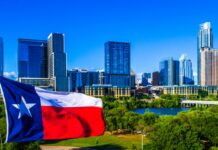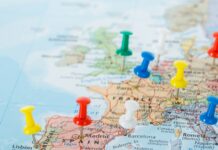[ad_1]
MakerDAO founder Rune Christensen told CoinDesk late last year that the MakerDAO Foundation had two years left before its planned obsolescence.
It sounds like it may take a bit longer but recent moves suggest the organization really is serious about shutting down.
First, it turned control of the supply of undistributed governance tokens, MKR, over to MKR holders at large. Then on Thursday, Christensen detailed a three-plank plan that would get community governance to the point where MakerDAO users wouldn’t even notice when the foundation shuts its doors.
That said, that institutional knowledge won’t evaporate, Christensen assured listeners. “The Foundation team will not leave the community. The team will change and be in a different form,” he said.
It’s been said that we are in the middle of a resurgence in decentralized autonomous organizations (DAOs). MakerDAO is arguably the most important app on Ethereum and for it to become a full DAO successfully would be a major step in that trend – one with repercussions that could be felt much longer than the meltdown of “The DAO” in 2016.
The crux of the idea is to fully decentralize the MakerDAO Foundation so that different parts of its work will be done by different organizations. Those workers would be employed, ultimately, by MKR holders.
“It’s important that we now as a community begin to prepare governance for taking over full responsibility of the system,” Christensen said.
Which almost amounted to a fourth plank. A recurring theme in Christensen’s talk was that the deployment of what he called a new “governance paradigm” needs to start soon so that the community can get used to it by doing it. By doing it, they will improve it and themselves get better at using it so that when the foundation is really gone, it will no longer be necessary.
“The rollout of the self-sustaining MakerDAO initiative is going to be a very much a step-by-step process that will happen very carefully and deliberately,” Christensen said. “About two years from now, that’s when the foundation will begin dissolving, and the dissolution will itself be a gradual process.”
Chris Burniske of venture firm Placeholder sees a bright future following these moves.
“Maker is already the most transparent and inclusive credit facility the world has, and decentralizing its operations will be key to hardening the system against adversarial actors and scaling it into a global utility,” Burniske told CoinDesk. “Calls to open-source the Fed may someday stem from MakerDAO’s success.”
Plank 1: Elected Paid Contributors (ECPs)
MakerDAO needs to break up the various kinds of work it does into different organizations around the world, Christensen said.
There could be a few development teams, a few marketing teams and a few teams working on government relations in different countries, all depending on what the protocol needed.
The idea is that groups would come to MKR holders with proposals and budgets, and if those globally dispersed MKR holders liked the concept, they would fund the project. Decred has been doing something similar for a while.
Still, “The crucial element of compensation by the protocol needs to be developed,” Christensen said.
He also said there are parts of the foundation now that can spin off and become standalone entities, pointing specifically to MakerDAO’s exchange, Oasis.
On some level, it’s already doing this. Christensen said MakerDAO already has fairly independent bodies now, listing out the risk team, the governance facilitator and the oracle team.
Plank 2: Maker Improvement Proposals (MIPs)
The improvement proposal model goes all the way back to the beginnings of the internet itself, and each corner of crypto has its own version.
MakerDAO has an extremely loose and informal early history and it is moving now into a much more formal structure, but one that reflects crypto’s values of decentralization.
“At its core, the goal is to formalize and structure what is already happening organically in the community,” Christensen said. “Maker Improvement Proposals are a way to completely formalize and structure this concept and then make the process entirely transparent end-to-end, so there’s no black box.”
Christensen described this as the next thing the community really needs to move on. The MakerDAO Foundation’s Charles St. Louis published a forum post on April 1 about the timeline for rolling this out.
The foundation would release 13 specific MIPs for the community to consider on April 6, he wrote.
Joey Krug, co-chief investment officer of Pantera Capital, told CoinDesk he felt the move is a return to MakerDAO’s grassroots. “To date, the foundation has almost a bit too much control, in my opinion, and to see it become more community-driven would be a great thing.”
Plank 3: Vote Delegates
Voter participation needs to be improved on MakerDAO. To do so, there needs to be a way for small holders who care but are not super informed to participate, by delegating their tokens.
This is a well-established process on Tezos, for example, but Christensen argues that inability to delegate has kept small holders and extremely security-conscious holders from voting their MKR.
Vote delegates are “people or entities that are assigned votes by MKR holders,” Christensen said. “The foundation believes that vote delegates are incredibly important in order to really overhaul the way that voting currently works.”
Christensen said the job of delegates will be to take positions and engage in public debates in the forum, in the way elected leaders would. This way, delegates will earn the support of voters who will back their views with their tokens.
In short, it’s representative democracy but one where a voter can change their representative in real time.
“Smaller MKR holders actually have a lot of MKR. It is the biggest voting bloc, but right now there is no way for them to pool their votes,” Christensen said. Once they can, he believes they will have real clout.
Crypto entrepreneur Ric Burton is bullish on vote delegation in the DeFi world. He has already stated his intention to serve as a delegate for holders of the Compound governance token (COMP), and he would like to do this same for Maker.
“I want to become a protocol politician for the MakerDAO,” Burton told CoinDesk.
Burton’s goal is to be a countervailing force to some of the largest holders of MKR. “I will amass delegated votes from the masses to keep Paradigm, A16Z & Dragonfly in check,” he said.
Logistical questions
If vote delegates are MakerDAO’s legislative body, ECPs and the domain teams are its executive branch.
Christensen called ECPs “public servants,” carrying out the will of the big picture articulated by MKR holders.
“Domain teams, I see them more as following the results of votes and implementing that, rather than they themselves being political actors,” Christensen said.
All of this raises a lot of practical issues. Such as, who will pay the people who work for MakerDAO. That is, who will actually sign the checks.
There’s a lawsuit being organized right now against the protocol by borrowers whose collateral was wiped out by a $4 million attack on March 12. Which part of the DAO would face a lawsuit?
Christensen acknowledged that these are good questions and they aren’t answered yet. In a way, he said, they will never fully be answered, because it will all need to change over time, but it’s important that the community starts practicing running itself – and soon.
“It’s not just that the tools aren’t in place, but that the community needs a lot of experience using these tools,” Christensen said.
The aftermath of the March 12 vulnerability was certainly a test, one that required filling a deficit in the ETH collateral backing dai stablecoins. Avichal Garg of Electric Capital, a MKR holder, told CoinDesk he was impressed by the quality and the dispersed nature of the conversation.
“I was very impressed at how it was both extremely effective and extremely decentralized. It felt like multiple pockets of people around the world coordinating and the community basically made all of the right things happen with minimal involvement from the Foundation,” Garg wrote.
When CoinDesk spoke to Christensen at length in 2019, it was clear he was ready to move onto other things, but he also didn’t want his creation to go awry without him.
He wants the community he founded to gradually get experience with self-sovereignty over time. In a way, it seems like Christensen envies the way Satoshi disappeared early.
“By the time the dissolution of the foundation happens,” Christensen said, “it won’t even matter, no one will care.”
Disclosure Read More
The leader in blockchain news, CoinDesk is a media outlet that strives for the highest journalistic standards and abides by a strict set of editorial policies. CoinDesk is an independent operating subsidiary of Digital Currency Group, which invests in cryptocurrencies and blockchain startups.
[ad_2]










